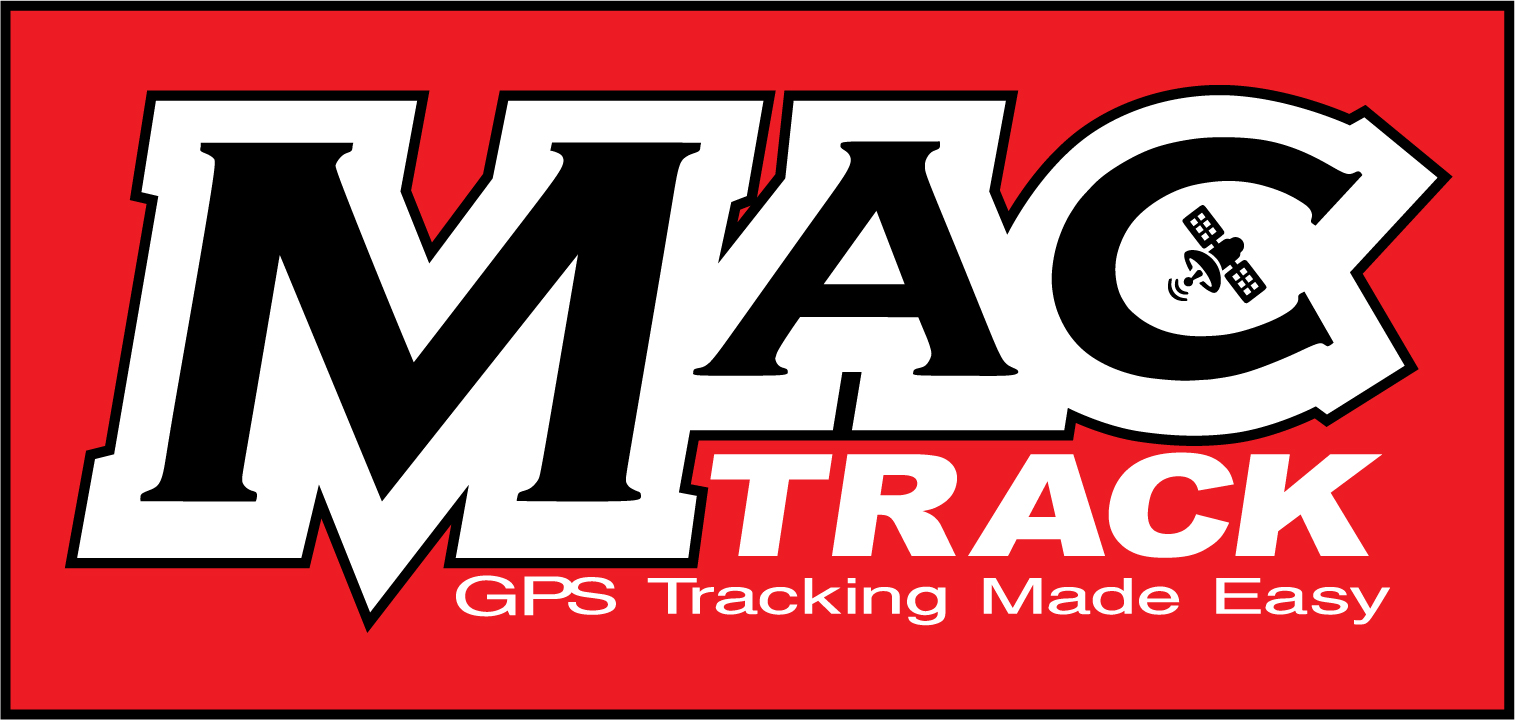In an era where technology and business continually intersect, choosing the right tools to enhance efficiency, safety, and customer satisfaction is paramount. Vehicle tracking systems have emerged as indispensable assets for businesses reliant on transportation. Dive into the multifaceted benefits of these systems and see why MacTrack stands out as the ultimate choice for companies across Australia and New Zealand aiming for unparalleled excellence in fleet management.
Enhanced safety for drivers and the public
Driver accountability: With vehicle tracking systems in place, drivers are acutely aware that their actions on the road are under constant observation. This sense of responsibility not only promotes adherence to safety guidelines but also fosters a culture of accountability within the fleet. By monitoring driving behaviours, managers can identify and address risky behaviours, which reduces potential incidents. The results are evident in decreased incidents of over-speeding, minimised erratic driving, and strict adherence to road rules, ultimately safeguarding both the driver and the general public.
Rapid emergency response: The unpredictable nature of the road means accidents, breakdowns, or medical emergencies can occur at any time. The integration of vehicle tracking systems provides an invaluable solution to such unpredictabilities. Immediate access to location data allows companies to pinpoint the exact location of an incident. This precision, combined with real-time data, enables companies to dispatch emergency services or roadside assistance with unmatched speed. By reducing response times, the chances of mitigating injuries, preventing further damage, or even saving lives are significantly heightened. Furthermore, for businesses, swift response can also mean reduced downtime and associated costs.
Driver wellness and fatigue management: Australia’s vast landscapes pose unique long-haul challenges. Extended hours on the road can impact a driver’s well-being. Modern tracking systems like the MacTrack sAInt Dash Camera do more than just trace vehicle locations; they can also monitor driver vitals and detect fatigue. This approach underscores a company’s dedication to employee welfare and road safety.
Optimising operational efficiency and productivity
Reduced idle time: Every moment a vehicle spends idling, it’s burning unnecessary fuel, which accumulates as a significant cost over time. Moreover, prolonged idling increases engine wear, leading to premature servicing needs and potential long-term damage. Through the analytical capabilities of vehicle tracking systems, fleet managers can gain insights into patterns of excessive idling across their fleet. This data allows for targeted driver training, encouraging more eco-friendly driving habits. By reducing idle time, businesses can achieve substantial fuel savings, extend the lifespan of their vehicles, and showcase their commitment to environmentally conscious operations.
Maintenance alerts: For transportation-reliant businesses, unexpected breakdowns disrupt operations. Advanced systems like MacTrack not only trace locations but also link to vehicle diagnostics. They alert managers about upcoming services and potential issues, ensuring consistent fleet health, reduced downtime, and safer trips.
Tangible cost savings
Fuel economy: Fuel expenses often represent a significant portion of operational costs for businesses that rely heavily on transportation. Minute fluctuations in fuel consumption, when extrapolated over a large fleet and extended periods, can result in noticeable differences in expenditures. Advanced vehicle tracking systems offer granular insights into driving habits and fuel consumption patterns. These monitoring systems can spotlight behaviours such as rapid acceleration or prolonged idling that lead to fuel inefficiencies. Equipped with this data, businesses can initiate targeted training programs or implement route optimisations, ensuring drivers operate vehicles in the most fuel-efficient manner. Over time, these corrective measures compound, translating to substantial savings and an enhanced bottom line for companies.
Insurance benefits: The insurance sector, always keen to minimise risk, has recognised the potential of vehicle tracking systems in promoting safer driving habits and providing data for accurate claim resolutions. Many insurance providers in Australia and New Zealand, cognisant of these advantages, incentivise businesses to adopt such technologies. They frequently offer premium discounts to companies that have integrated vehicle tracking systems. Beyond the immediate financial relief of reduced premiums, the presence of these systems can expedite claim processing by providing precise data on vehicle locations, speeds, and behaviours during incidents. This not only results in direct financial savings for businesses but also fosters a collaborative relationship between insurers and businesses, both striving for safer, more efficient operations.
Protection of valuable assets
Theft deterrence and swift recovery: Vehicles are major business investments crucial for operations. Tracking devices deter thieves aware of traceability risks. If theft occurs, real-time location and movement history aid police, speeding recovery and increasing arrest chances. Tracking provides enhanced security and assurance, guarding against theft proactively and reactively.
Monitoring off-hour usage: Vehicles dedicated to company operations are intended to serve specific purposes. Any deviation from their sanctioned use not only leads to wear and tear but also potential liabilities. With sophisticated vehicle tracking systems, fleet managers can have a comprehensive view of when and how company vehicles are being used, even during off-hours. This continuous monitoring can flag unauthorised usage or side trips, ensuring that company assets are strictly used for their intended purposes. Moreover, by curbing unauthorised use, businesses can reduce unwarranted fuel expenses, minimise wear, and prolong the life of their vehicles. This protective measure also ensures that the reputation and integrity of the company are upheld, as vehicles are less likely to be seen in unsanctioned or inappropriate locations.
Promotion of environmental responsibility
Eco-friendly driving habits: As global awareness about environmental conservation grows, businesses find themselves under increasing pressure to adopt sustainable practices. For companies reliant on vehicular operations, this often begins with promoting eco-friendly driving habits. Efficient driving behaviours, such as consistent speeds, gentle acceleration, and reduced idling, can significantly decrease fuel consumption. In turn, this leads to a reduction in greenhouse gas emissions, allowing companies to directly lessen their carbon footprint. Both Australia and New Zealand have set ambitious environmental conservation targets, and businesses can play a pivotal role in achieving these goals. By utilising vehicle tracking systems, companies can identify, encourage, and reward efficient driving behaviours, ensuring they contribute positively to the broader environmental objectives of their respective nations.
Impact reports: With growing scrutiny on corporate environmental responsibility, simply adopting sustainable practices may not be enough. Stakeholders, from investors to customers, now demand transparency and accountability. Advanced vehicle tracking systems rise to this challenge by offering detailed environmental impact reports. These reports dive deep into a fleet’s operations, quantifying aspects such as total emissions, average fuel efficiency, and patterns of resource consumption. Armed with this data, businesses can not only showcase their commitment to sustainability but also identify areas that require further improvement. The insights gleaned from these reports can guide strategic decisions, allowing companies to adopt greener technologies, refine operational guidelines, or engage in environmental offset programs. This proactive approach to environmental responsibility not only bolsters a company’s reputation but also positions it as a leader in sustainable business practices.
Elevating customer service st standards
Real-time customer updates: In today’s digital world, customers expect prompt updates from businesses, especially in logistics and delivery sectors. Using vehicle tracking systems, companies provide real-time whereabouts and expected arrivals, ensuring transparency. If delays occur, immediate updates manage expectations and uphold trust. This consistent communication is pivotal in enhancing customer trust and standing out in a competitive market.
Performance analysis: Over time, tracking data offers valuable insights for businesses aiming to improve customer service. Analysing this data reveals patterns, such as delayed routes or peak performance times. This analysis spotlights both excellence and areas needing improvement. Based on these findings, businesses can tailor training, adjust operational strategies, and refine customer initiatives. This data-driven approach helps businesses consistently enhance service, boosting customer loyalty and positive referrals.
Ensuring regulatory compliance
Automated logbooks: The transportation industry in both Australia and New Zealand is governed by strict regulations that require meticulous record-keeping. One of the key areas where compliance is vital is in maintaining accurate logbooks. Manual entries, although traditional, are susceptible to errors, oversights, and even tampering. With the integration of vehicle tracking systems, the need for manual logbook entries is dramatically reduced, if not entirely eliminated. Our systems can automatically document key data points like travel distances, start and stop times, and locations visited. Such automation ensures that records are not only accurate but also consistent, greatly reducing the potential for non-compliance penalties. This streamlined approach to record-keeping also saves drivers’ time, allowing them to focus more on their primary responsibilities.
Fatigue management: For businesses operating in the expansive terrains of Australia, managing driver fatigue is not just a matter of safety but also regulatory compliance. Authorities have instituted mandatory rest breaks for drivers, especially those involved in long-haul operations, to combat the risks associated with fatigue. MacTrack is acutely aware of these regulations and offers systems such as the MacTrack sAInt Dash Camera that is equipped with fatigue management features. These systems can monitor the duration a driver has been on the road and provide automated alerts when mandated rest breaks are approaching. Such timely notifications ensure that drivers adhere to rest requirements, not only promoting their personal welfare but also ensuring that businesses remain compliant with national regulations. This dual advantage of safety and compliance solidifies the importance of tracking systems in contemporary fleet operations.
Final thoughts
From boosting safety measures to driving operational efficiencies and fortifying compliance, the advantages of vehicle tracking systems are undeniable. MacTrack not only brings the best of these benefits to the table but also pairs them with innovative features tailored for the unique landscapes of Australia and New Zealand. With each aspect designed to improve your business, there’s never been a better time to invest in MacTrack. Choose MacTrack today for a comprehensive solution that prioritises your fleet’s well-being and your business’s success. Your journey towards streamlined operations, unparalleled safety, and maximised savings starts here. View our range of products or get in touch with our team today.

